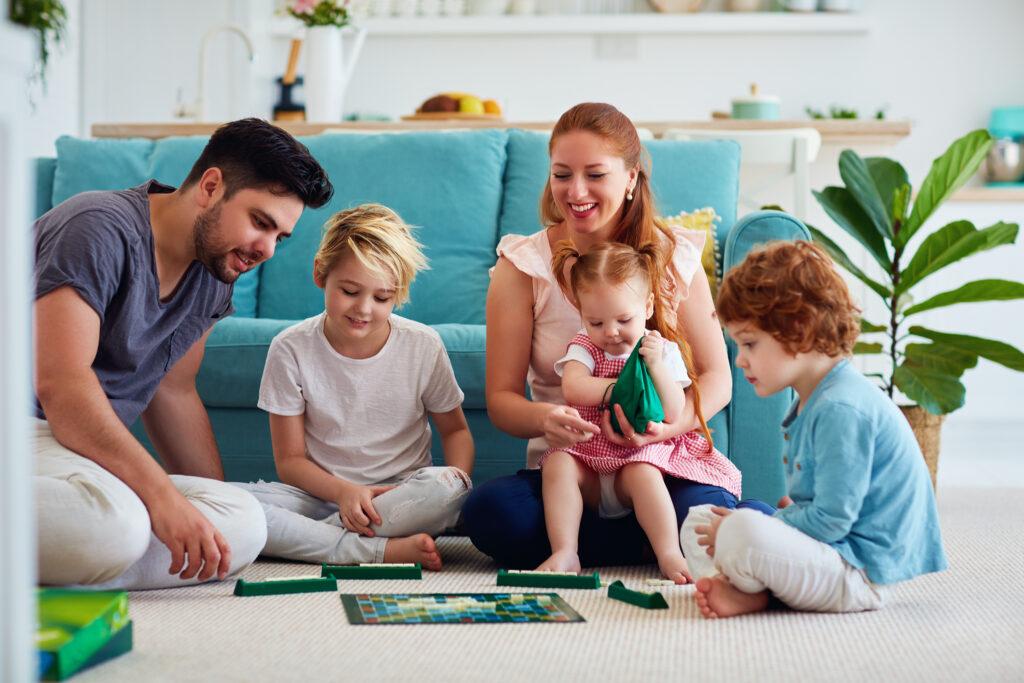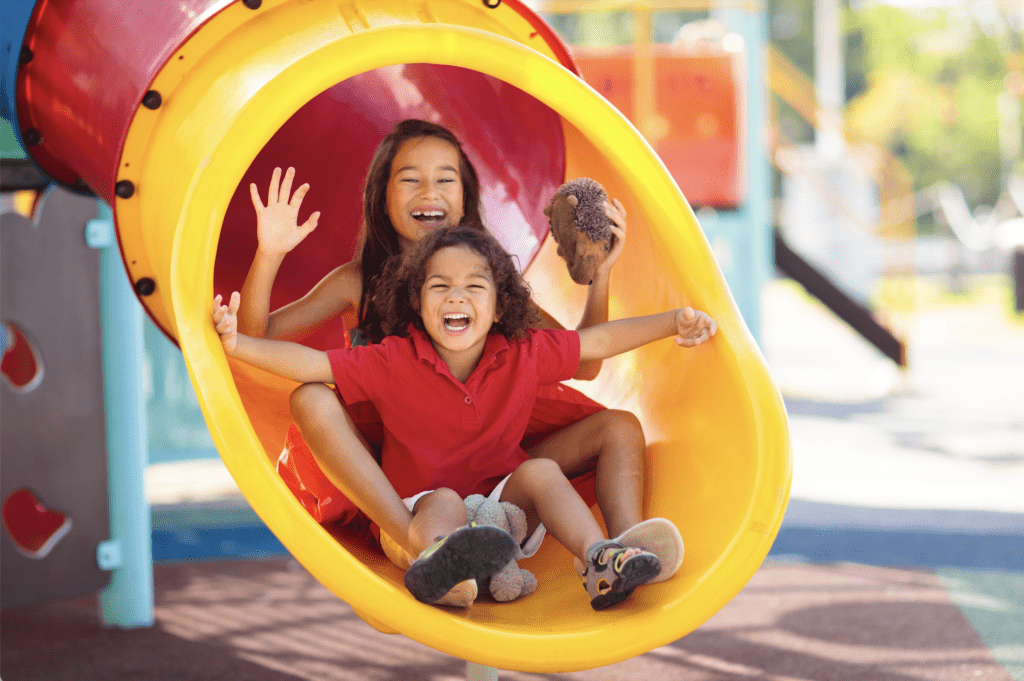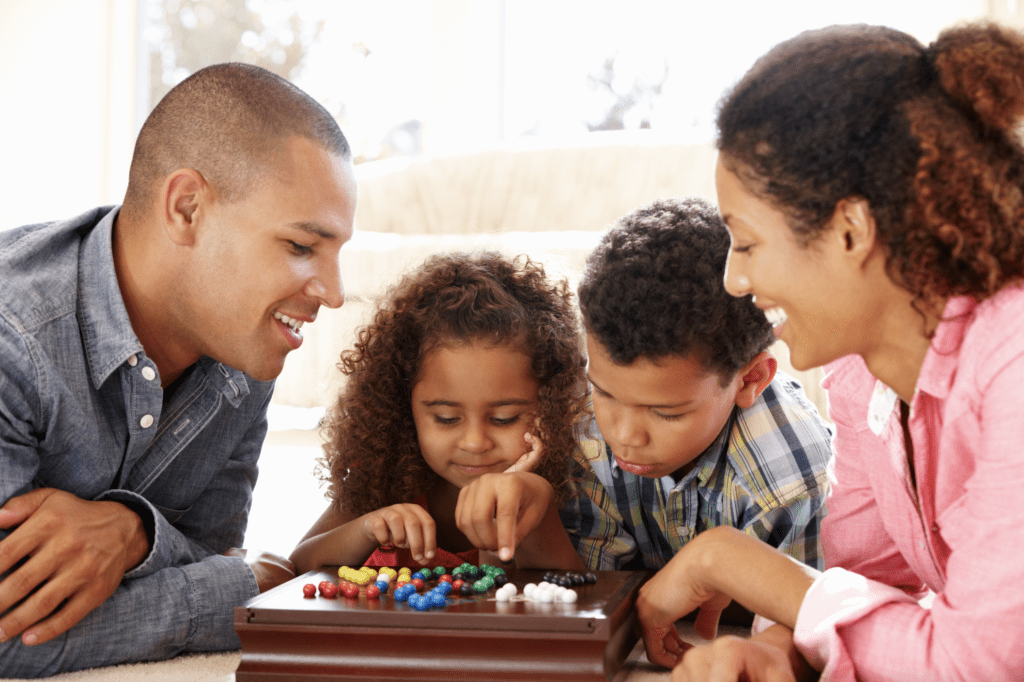The Power of Play



There are lots of different kinds of play. The National Institute of Play, classifies play into 7 unique categories:
- Attunement Play
- Body Play & Movement
- Object Play
- Social Play
- Imaginative & Pretend Play
- Storytelling-Narrative Play
- Creative Play
Play fuels brain development, activating the regions responsible for language processing and attention; motor control, coordination, and balance; and goal setting, decision making, and organizing our thoughts and feelings. Unstructured free play fosters creativity and collaboration as children construct a world around them where they can practice the skills that they will need to tackle the challenges of today and the future. Regardless of age, during play, children develop greater confidence as they learn to navigate both the physical and the emotional world, and it is here that they practice managing their emotions, working with others, solving problems, and learning from failure. They learn the values of trust and fairness, compassion and cooperation.
Play can bond friendships and families, and can be used as a tool during challenging times to strengthen the attachment between parent and child, siblings, or friends. In his book, Playful Parenting, psychologist Lawrence J. Cohen explains the restorative power of play:
During play, children can learn to manage complex emotions; practice cooperating with others; work thorough shyness, fear or anger; problem solve and resolve conflict; and learn to advocate for themselves.
According to Dr. Kenneth Ginsburg, a pediatrician at The Children’s Hospital of Philadelphia and co-author of The Importance of Play in Promoting Healthy Child Development and Maintaining Strong Parent-Child Bonds, a special report on play from the American Academy of Pediatrics:
“Kids deal with their anxiety and fears through free play. It’s their natural means of building resiliency.”
Humans, as well as other mammals, are hardwired for play. Just like eating and sleeping, play is instinctual. Play allows us to experiment in the world, learning from trial and error. It relieves stress and gives us a feeling of well-being. It helps us to connect with others and bond together. So, go play! Play with your children and your teens. Make space for them to play on their own. Allow them to explore and experiment in the world around them, to discover new things and find their passions, and most importantly, through play, to develop the confidence, resiliency, and adaptability that will last them a lifetime.
Follow these simple suggestions to encourage play in your family:
- Prioritize play. It communicates to your child that play in an important part of daily life at all ages.
- Be conscious of the family schedule and make space in your children’s lives for play.
- Give your children the opportunity for unscheduled, independent, child-directed, free play.
- Let them be bored – fight the urge to direct them into an activity. Amazing things can spring up out of boredom!
- Offer open-ended toys such as blocks, balls, dolls, art supplies, or costumes – items that can be used in many ways – to encourage imaginative, creative play.
- Encourage your children to engage in active play instead of passive entertainment (video games and television).
- Create screen-free zones in your home and limit “background media” use during playtime and family time.
- Play together – find ways that you can play together as a family that everyone enjoys.
- Model play for your children. Show them how to take turns, listen to others, solve a conflict, use your imagination, and share.
- Create a game night complete with favorite family games and a special meal chosen by your children. Make it even more fun with costumes, crazy hats, silly voices, or props. Set up a picnic – indoors or out – for your game space and meal together.
- Find opportunities for spontaneous one-on-one play with each of your children.
- Encourage experimentation, exploration, innovation, and collaboration in play.
- Go outside. Fresh air, sunshine, and being in nature have positive effects on both physical and mental health.

Podcast
The Science of Play
Radiolab
The Power of Play with Dr. Peter Gray
The Child Psych Podcast
Videos
How to Play with Your Newborn (and Why You Should)
CanDo Kiddo
Articles
How to Play with Your Baby
Parents.com
How Fun and Games Help Children Thrive
HealthyChildren.org
Playing with Your Child: Games for Connection and Emotional Intelligence
Aha! Parenting
12 Board Games for Kids to Make Family Time Fun
Care.com
Best Games to Teach Kids Self-Regulation – an Age by Age Guide
Nurture & Thrive
The Magic of Play
Parenting
The Play Brochure from Pathways
Pathways.com
Books
The Playful Parent: An Exciting New Approach to Raising Children That Will Help You Nurture Close Connections, Solve Behavior Problems, and Encourage Confidence
by Lawrence J. Cohen, Ph.D.
The Way of Play: Using Little Moments of Big Connection to Raise Calm and Confident Kids
by Tina Payne Bryson and Georgie Wisen-Vincent
Play: How it Shapes the Brain, Opens the Imagination, and Invigorates the Soul
by Stuart Brown
